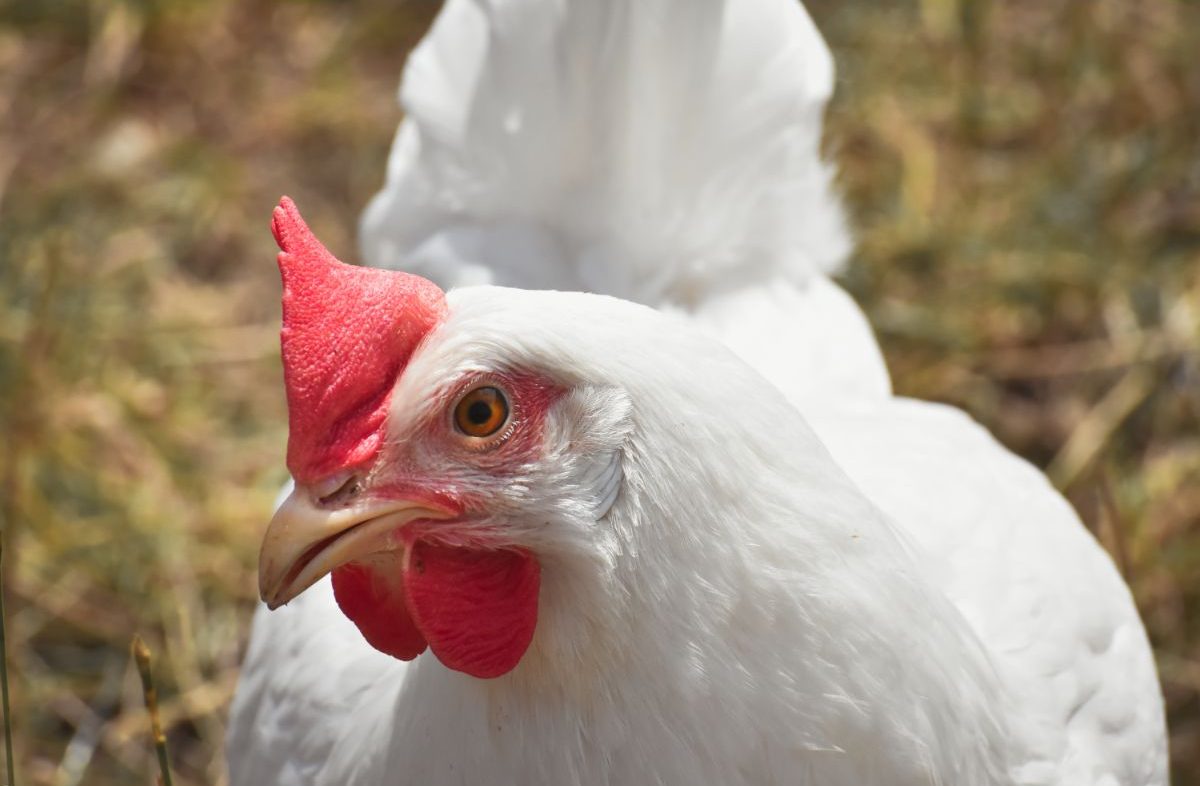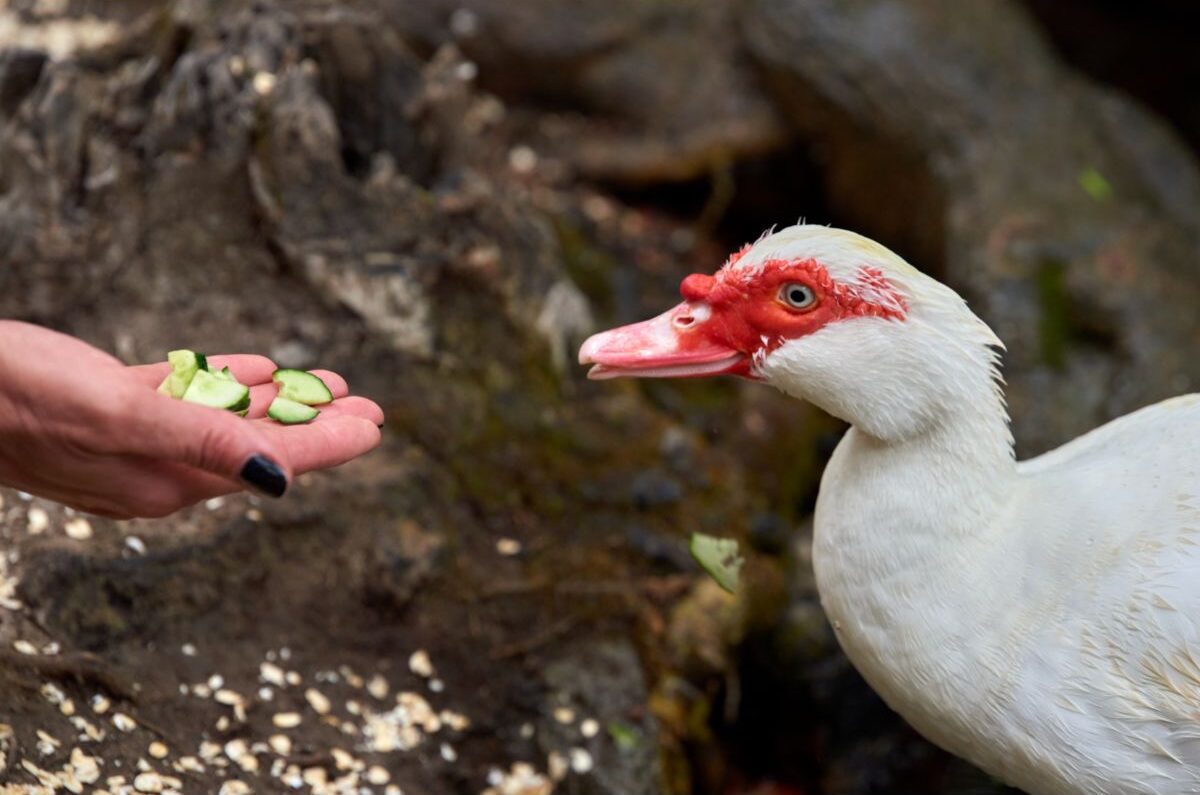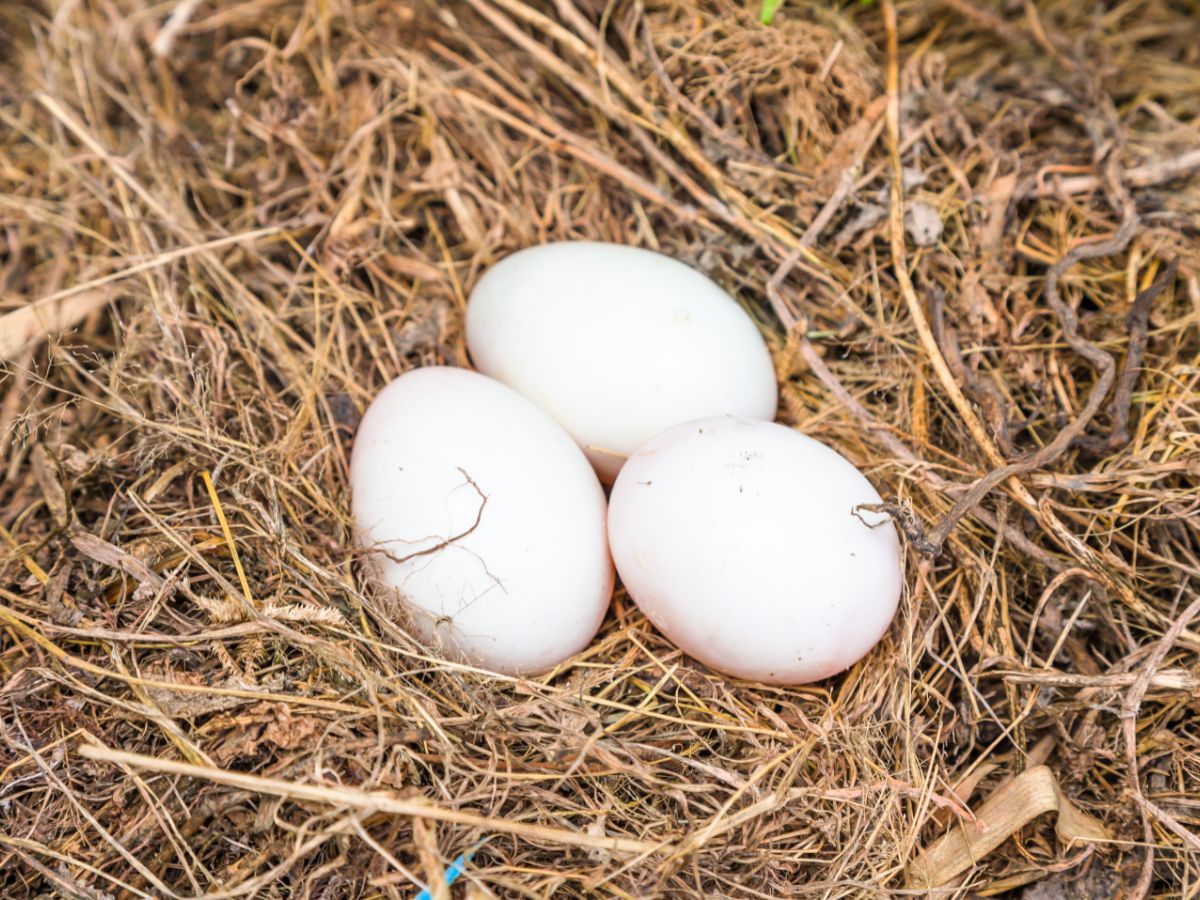While not all pecking is because of bullying, when it is persistent and directed at a specific chicken or group of chickens, you can assume that it’s more than a pecking order activity. Bullying is common in any chicken run, but it can become severe, so it needs to be stopped as soon as possible. How can you stop chickens pecking?
How to stop chicken pecking:
- Remove the stress triggers
- Relieve the boredom
- Let them out of the run
- Distract the bully
- Attach Pinless Peepers
- Isolate the victim
- Isolate the bully
- Rehome the bully
- There are times when no action is needed
Whether you’re a backyard chicken farmer or raise chickens on a larger scale to earn an income, the happiness of your flock is an important issue. Bullying in the run can lead to injuries and even the death of victims, so it’s something that needs to be understood and stopped. Once you know the causes, the remedies can be found.
Contents
How To Stop Bully Hens From Pecking
Having looked at the causes of bullying behavior, you can now take positive remedial steps to restore the peace in the chicken run.
1. Remove The Stress Triggers
Ensure there is sufficient space for the birds, keep the feeders filled, and remove any sick birds from the flock – these are a few of the actions you can take to remove stress from your chickens.
2. Relieve The Boredom
Much as they love routine, chickens are easily bored. You can brighten up their lives literally by
- hanging shiny objects to reflect the sun, such as mirrors or old CDs
- providing toys such as swings, hollow logs for them to scratch in for grubs and worms, treat balls – toys that can be bought but are easy to make.
3. Let Them Out Of The Run
If possible, let the chickens out of their run to free-range for a while. Even if they’re not overcrowded, your flock will enjoy being able to forage for food in the open. If you have a large flock, it may be even more effective if you let them out in groups and rotate those groups throughout the day. That way, you not only relieve the boredom but also give those in the run more space to move around while waiting their turn to free-range.
4. Distract The Bully
Fill a can with stones and use it as a noisy rattle to cause a distraction whenever you see bullying behavior. Another effective weapon to distract the bully is a water pistol, which you can aim at the bully as she goes into the attack.
This distraction is effective, but it requires you to police the activity in the run all day – and that takes more time than you’re likely to have.
5. Attach Pinless Peepers
Pinless peepers*, available online, are blinkers fitted by attaching them (painlessly) to the nostrils of the bully chicken. They allow her to forage for food but not to see directly in front of her, so she cannot peck feathers from the intended victim.
6. Isolate The Victim
There are two ways that isolation can be used to stop chickens pecking. One way is to take the victim out of the run and keep her in a cage until she has recovered from the injury or illness that triggered the bullying. This can be repeated once or twice until the bullying stops, but the risk is that her status in the pecking order may be lower when she returns to the run.
Alternatively, the victim can be allowed to free-range in full sight while the bully and the rest of the flock remain in the run. This will elevate her status when returned to the flock, and the bullying should stop.

7. Isolate The Bully
If all else fails, removing the bully might end the pecking behavior. The bully must be kept visible to the rest of the flock but separated for a few days so that on her return, her position in the pecking order has been lowered, and hopefully, her bullying behavior stopped.
8. Rehome The Bully
In some cases, the bully cannot be trained to stop pecking other birds. She may be a particularly aggressive breed, or just a nasty individual chicken, in which case she needs to be permanently removed from the flock where she has caused so much disruption and rehomed to a new group where her status is at the lowest level in the pecking order.
9. There Are Times When No Action Is Needed
Although bullying behavior is very destructive and can lead to injury and even the victims’ death, it is best not to intervene in certain situations.
One of those situations is when a hen becomes broody and has a strong desire to sit on eggs and wait for them to hatch, even when they’re not fertilized. She will be aggressive in defending the nest but also becomes the target for bullying by the rest of the flock. In this case, the solution is to do nothing but allow her to get over the broody stage and return to the flock. Any of the remedial steps we have discussed will be unlikely to have any effect.
Is It Bullying Or Pecking Order Squabbles?
In every chicken run, the relationship structure of the flock is established by the more aggressive chickens jostling and pecking the meeker ones so that they get to feed first, get the best positions on the perch, and generally get preference. These are minor violent acts, and once the pecking order is established, they quieten down.
When the violence is persistent and is aimed at specific victims, who may then cower in corners, stop eating and possibly suffer injury, then it is definitely bullying, which is destructive and needs to be stopped.
The Causes Of Bullying Need To Be Resolved
Clearly, the remedies for bullying depend on the causes, so to stop the behavior, you need to look closely at what’s happening in your flock.
- Stress will trigger bad behavior and is caused, more often than not, by a change in routine. Chickens thrive in a stable environment, with no change in location, feeding times, new birds being introduced, or illness affecting the flock. Perceived threats from a predator, even if it’s the friendly family dog, will result in stress-related behavior.
- Boredom can result in the bully in the flock pecking at others for no other reason but that there are no distractions.
- Overcrowding can become a problem as your flock grows. An average-size chicken needs at least four square feet of space in the coop and 200-300 square feet if free-ranging.
- When detected by the others, illness or weakness in a bird may trigger the instinct to preserve the flock by ridding it of the liability, and the whole flock will victimize the ill bird.
Conclusion
Chicken bullying and pecking out the feathers of the victims are one of the hazards of rearing chickens. There are remedies available, whether it’s due to the conditions the birds are living in or whether it’s a question of having aggressive breeds in your flock.
Removing stress factors, providing the best possible conditions, and keeping your chickens entertained are steps you can take to ensure that your birds are content and that you reap the rewards of having and caring for a happy flock.




